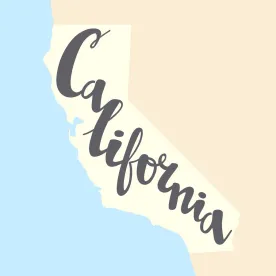Over the past two years, class actions have been filed against nearly every major retailer challenging various sales and pricing practices. Many of these have focused on outlet stores (sometimes called “factory” stores). These cases have generally claimed that selling product made only for the outlet or factory store, where that produce was never sold in mainline channels (e.g., in regular stores, boutiques, department stores or online), is deceptive, particularly product if the store suggests that the made-for-outlet was previously sold in mainline channels for a higher price. In many states, the trend has been to dismiss the case on the pleadings, holding that plaintiffs, who purchased a product for the price advertised, were not injured, especially if they cannot allege that the product was worth less than what they paid. In California, with the expansive reach of the Unfair Competition Law (UCL), False Advertising Law (FAL), and Consumer Legal Remedies Act (CLRA), courts have generally permitted these claims to proceed beyond the pleadings.
But California’s consumer protection laws are not limitless, and the California Court of Appeal’s recent decision in Rubenstein v. The Gap, Inc., Case No. B272356 (Cal. App. 2d Dist.) is an example. In that case, the Court of Appeal held that companies can sell made-for-outlet product at their outlet or factory stores, and that there is nothing unlawful or deceptive about it. In Rubenstein, Gap (which owns and operates Gap, Banana Republic, and Old Navy stores), sold at its “Gap Factory” and “Banana Republic Factory” stores made-for-factory product, which had never been sold at mainline Gap or Banana Republic stores. The plaintiff (Rubenstein) sued, alleging that the factory product was of lower quality than product sold in mainline stores, and so advertising the factory product as “Gap” or “Banana Republic” product was deceptive and unlawful because, according to Rubenstein, it suggested that the factory product was of equal quality to the mainline product. The Court of Appeal rejected these arguments and affirmed the trial court’s dismissal of the lawsuit on the pleadings.
The Court of Appeal noted that Rubenstein “allege[d] no advertising or promotional materials or any other statements disseminated by Gap to consumers that its factory store clothing items were previously for sale in traditional Gap stores or were of a certain quality.” Instead, the only allegation was that the factory product had Gap or Banana Republic labels. But a company’s use of its own label on its own product is lawful: “Gap’s use of its own brand name labels on clothing that it manufactures and sells at Gap-owned stores is not deceptive, regardless of the quality of the merchandise or whether it was ever for sale at other Gap-owned stores. Retailers may harm the value of their brands by selling inferior merchandise at factory stores, but doing so does not constitute false advertising.”
Having confirmed that companies can sell made-for-outlet or made-for-factory product using their own labels, the court then also confirmed that doing so was not deceptive and did not violate California’s consumer protection laws. “Gap’s use of its own brand names in factory store names and on factory store clothing labels is not likely to deceive a reasonable consumer for the simple reason that a purchaser is still getting a Gap or Banana Republic item.” In so holding, the court rejected both pillars of Rubenstein’s argument. Rubenstein argued that “reasonable consumers believe outlet stores sell products that were previously available for purchase at retail stores,” but the Court of Appeal found that the complaint alleged “no facts showing this to be true” and further put the onus on consumers to ask about the origin of a product if that concerns them: “a consumer for whom the retail history of factory store items is material can ask Gap employees about this.” Rubenstein also argued that the factory product was of lower quality than mainline product, and therefore selling the factory product with the same label was deceptive. The court rejected that argument too: “As for any quality issues, consumers could have examined factory store apparel before purchasing it, read the clothing labels for materials used in manufacture, and returned merchandise after purchase if it was unsatisfactory.” They could also have asked Gap employees: “A consumer who cared about whether the items were identical to other Gap merchandise could have asked a sales associate whether this is true.” On top of that, the court noted that “Rubenstein [did] not allege that any of the clothing items she purchased at Gap and Banana Republic Factory Stores had any quality issues.”
In short, “consumers [got] Gap and Banana Republic brand name items for low prices,” and there is nothing unlawful or deceptive about a company selling its own product under its own label, even if that product is of lower quality than the product sold in its mainline channels. How this opinion will affect the numerous cases percolating through California state and federal courts remains to be seen. At a minimum, it favors a thorough review of false advertising claims on the pleadings so that groundless claims are dismissed before litigation costs increase.



 />i
/>i
